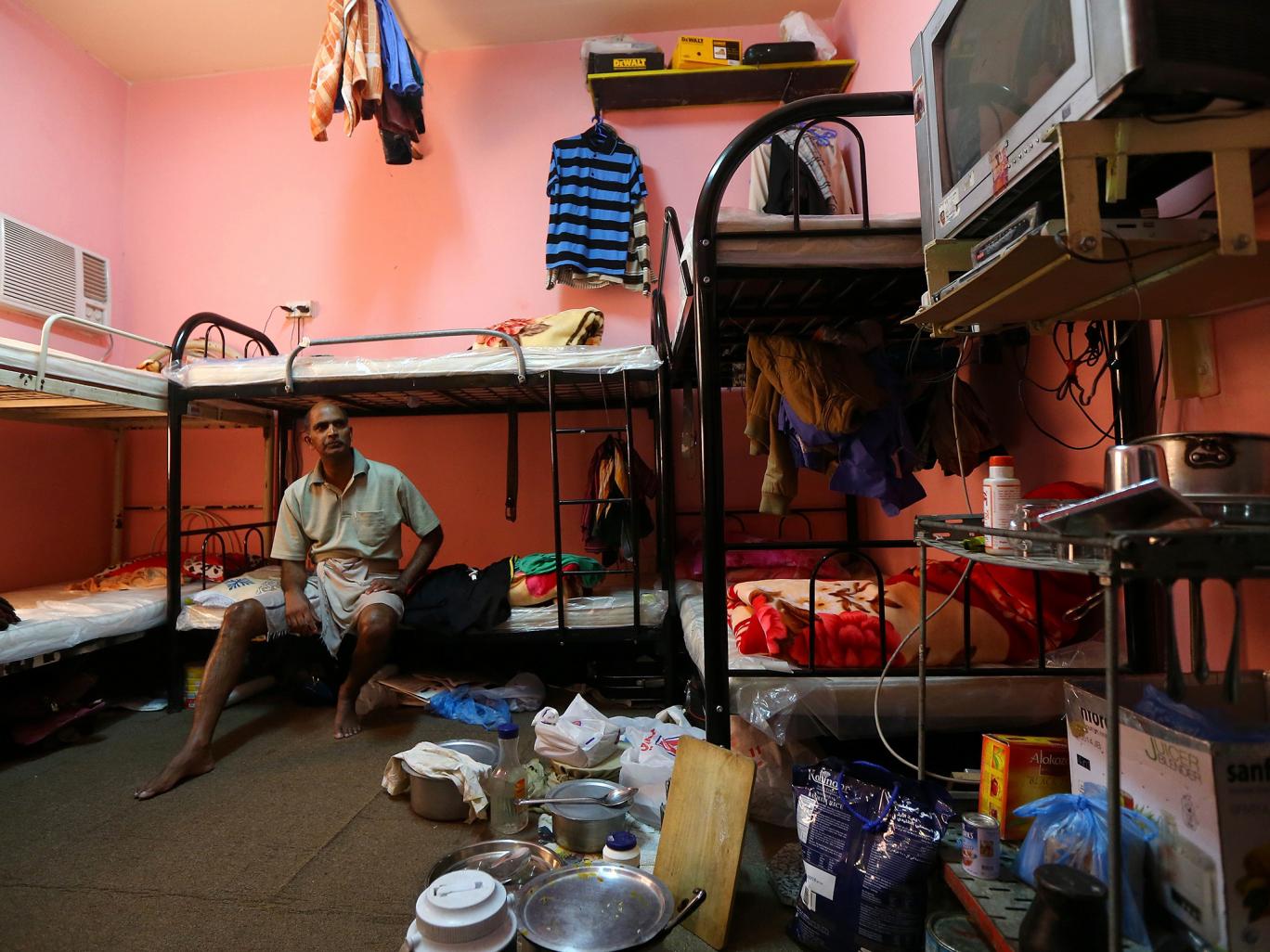Qatar 2022: Migrant workers still being exploited despite promises of reform, says Amnesty International
Despite the country’s promises over the last decade to improve workers' conditions, Amnesty International claims that such reforms have failed to materialise

Your support helps us to tell the story
From reproductive rights to climate change to Big Tech, The Independent is on the ground when the story is developing. Whether it's investigating the financials of Elon Musk's pro-Trump PAC or producing our latest documentary, 'The A Word', which shines a light on the American women fighting for reproductive rights, we know how important it is to parse out the facts from the messaging.
At such a critical moment in US history, we need reporters on the ground. Your donation allows us to keep sending journalists to speak to both sides of the story.
The Independent is trusted by Americans across the entire political spectrum. And unlike many other quality news outlets, we choose not to lock Americans out of our reporting and analysis with paywalls. We believe quality journalism should be available to everyone, paid for by those who can afford it.
Your support makes all the difference.Qatar’s migrant workers are still being subject to “exploitation and abuse” on a daily basis ahead of the 2022 World Cup, a report by Amnesty International has claimed.
After controversially securing the rights to stage the competition back in December 2010, the gulf state’s population has swelled following an influx of nearly two million migrant workers.
Qatar’s labour laws have subsequently fallen under scrutiny, with a series of reports and investigations raising concern over workers’ rights and conditions.
Despite the country’s promises over the last decade to improve matters, Amnesty International claims in a 19-page report, titled 'Reality Check: The state of migrant workers' rights with less than four years to go until the Qatar 2022 World Cup', that such reforms have failed to properly materialise.
In a statement, the human rights' organisation's deputy director of global issues Stephen Cockburn said: "Time is running out if the Qatari authorities want to deliver a legacy we can all cheer - namely a labour system that ends the abuse and misery inflicted upon so many migrant workers every day.
"The Qatari authorities have been taking some important steps to protect labour rights, but much more needs to be done.
"Holes in the reforms to date mean many workers are still stuck in harsh conditions, vulnerable to exploitation and abuse, while those who return home do so empty-handed, with no compensation and no justice."
The report acknowledges that the Qatari authorities have passed new laws to improve workers' rights since signing an agreement with the United Nations' International Labour Organisation in November 2017.
Authorities also moved to end the practice of ‘Kafala’ - the much-abused requirement for employees to obtain an “exit permit” requiring their employer’s permission to be able to leave the country.
However, according to Amnesty International, serious limitations in some of the reforms mean many migrant workers in Qatar are still at risk of forced labour, restrictions on their movement and other abuses.
The also charity insists that the notorious ‘kafala’ sponsorship system remains firmly in place despite partial reforms. As such, migrant workers continue to face criminalisation for “absconding” and risk having their passports confiscated.

Amnesty International also pointed out that the temporary minimum wage for those building the country's infrastructure is around £155 per month, while the new labour courts set up to tackle the non-payment of wages and other complaints are overwhelmed.
The report calls for "fundamental reform" of the sponsorship system, a strengthening of measures to make sure workers are paid in full and on time, improved enforcement of the new laws, proper funding for the dispute resolution committees so they can keep up with the workload, a green light to form trade unions and better protection for domestic workers.
Neither the Qatari government nor the World Cup's organising committee has responded yet to The Independent’s requests for comment.
Qatar is building seven new stadiums and renovating one in order to stage the 2022 World Cup, which has been moved to the winter because of concerns about the Gulf peninsula's extreme summer heat. In fact, the country's climate has been partly blamed by experts for high mortality rates among migrant construction workers.
Join our commenting forum
Join thought-provoking conversations, follow other Independent readers and see their replies
Comments